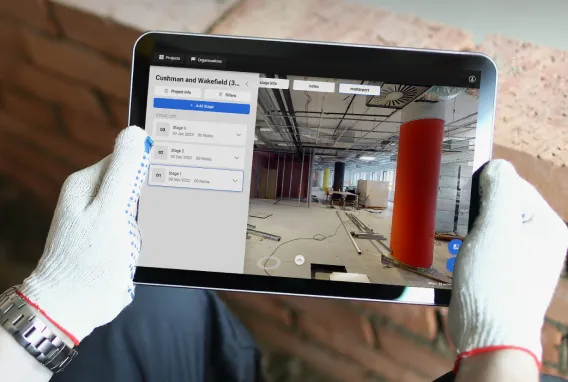STAGES as Document Repository for Construction Projects
In today's construction landscape, the management of documentation presents increasing challenges. Legal requirements, the need for quick access to information, and the vast number of documents generated at every stage of a project render traditional paper-based storage methods inadequate. In response to these demands, innovative tools like the STAGES application have emerged, serving as a comprehensive document repository for construction processes. While this application offers numerous advantages, particularly in terms of storing and sharing electronic documents, it is essential to highlight the positive aspects of maintaining traditional paper backups.

Benefits of Using the STAGES Application
The STAGES application is a modern tool that facilitates the storage, management, and sharing of construction-related documents. It provides all participants in the construction process—from investors to contractors, engineers, and regulatory bodies—with easy access to up-to-date versions of projects, contracts, protocols, approvals, and other critical documents.
-
Increased Efficiency and Organization: STAGES allows for the storage of documents in a single, organized location. The ability to easily associate documents with specific construction phases streamlines information management, making it clear and efficient. Documents are accessible at any time, significantly reducing the time spent retrieving them compared to traditional paper methods.
-
Security and Backups: The electronic document repository within the STAGES application enables backup creation, which is crucial for protecting data from loss. With cloud storage, documents remain secure even if physical copies are destroyed or computer hardware fails.
-
Real-Time Availability: The application ensures that all documents are accessible at every stage of construction, enhancing communication among project participants. Changes to documents can be instantly visible to all stakeholders, eliminating the risk of errors due to outdated information.
-
Integration with Other Systems: The application is compatible with various systems used in construction, facilitating seamless integration with project management, planning, and cost control tools. This integration allows users to access all key information related to the construction project in one place.
The Positive Aspect of Paper Document Backups
While the STAGES application serves as an excellent tool for storing electronic documents, the advantages of traditional paper documentation should not be overlooked, especially in the context of backup creation.
-
Security Against Technological Failures: Despite their reliability, electronic systems are not immune to failures; loss of access or data deletion can occur due to unforeseen technical issues. Therefore, maintaining paper backups, even in limited scope, can provide invaluable protection against the complete loss of important documents.
-
Accessibility for Non-Tech Savvy Individuals: Although technology is becoming increasingly ubiquitous, many individuals still prefer traditional work methods. Storing documents in paper form allows for easy access and review without the need for computers or specialized devices.
-
Compliance with Formal Requirements: In some cases, legal regulations mandate the possession of paper copies of documents, particularly those required during administrative inspections. In many instances, paper copies may also be the preferred format for public institutions, such as government agencies or courts, which often require physical documentation.
-
Protection in Emergency Situations: While cloud backups are secure, in emergencies such as floods, fires, or other disasters, storing critical documents in paper form at designated locations (e.g., fireproof archives) can provide a last resort protection in case of the technological failure.
Conclusion
The STAGES application represents a valuable tool for managing construction documentation, enabling its storage, sharing, and safeguarding in electronic form. Its advantages—such as easy access, security, and integration with other systems—make it indispensable in the construction process. However, the positive aspects of maintaining paper document backups should not be disregarded. Traditional documentation serves as an important safeguard in emergencies, ensuring continuity of operations and protection against data loss. Therefore, combining both electronic and paper methods may provide the optimal solution for managing construction documentation effectively.

